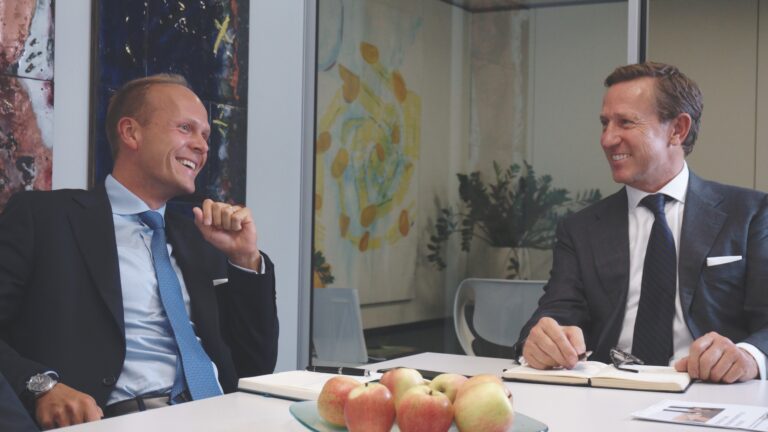From Interest Rate Cuts to Constraints in Diplomacy
Good Morning Ladies and Gentlemen
”In the real world, nothing happens at the right place and time. It is the job of journalists and historians to correct that.”
Mark Twain
The Financial Times reported that for individuals purchasing health insurance in the U.S. through government exchanges, the median increase in 2026 is 18%, more than double last year’s rise of 7%. Simultaneously, we’ve received the most significant negative revision to U.S. employment statistics, with nearly a million jobs adjusted downward.
Rate Cuts by the U.S. Federal Reserve
On Wednesday, the US Federal Reserve reduced interest rates by a quarter of a percentage point, bringing the new range to 4.00% to 4.25%, which investors anticipated. This marks the first change in interest rates since December 2024. During the announcement, Jerome Powell described the decision as a ‚risk management rate cut‘. The Fed also signalled expectations for two additional rate cuts of 25 basis points each at its upcoming meetings in October and December, a forecast supported by market expectations. Looking at the two-year U.S. Treasuries, the Fed seems to be still behind the curve. Why is this the case, you may ask?
The Fed’s Dual Mandate
Powell reiterated the Fed’s dual mandate of maintaining price stability and supporting the labour market, describing the balancing act as challenging given that inflation remains above the target level. The target inflation rate is 2%, but the current rate is 2.9%. This is probably the best explanation for why the Fed still seems behind the curve. Regarding inflation, examining grocery item price fluctuations reveals significant year-over-year increases in various categories. For instance, coffee has experienced a remarkable escalation of 20.9%, while steaks have risen by 16.6%. Furthermore, apples and bananas have seen increases of 9.6% and 6.6%, respectively. Notably, these price adjustments occur although less than 50% of tariff-related costs have been transmitted to consumers thus far. This trend underscores the complexities of supply chain dynamics and consumer pricing in the current economic landscape.
Future Interest Rate Path in the U.S.
A likely future interest path in the U.S. Looking ahead to 2026, the Federal Reserve anticipates only a single rate cut, while the futures market predicts three. Following Wednesday’s 25 basis point cut, the market has assigned high probabilities of 88% and 82% for further rate reductions in October and December, respectively.
The Bank of England
The Bank of England, in contrast, chose not to lower interest rates during today’s meeting, citing persistently high inflation in the UK. The monetary authorities maintained the key rate at 4.00%. Nonetheless, the decision by the Bank of England’s (BoE) Monetary Policy Committee (MPC) sparked internal controversy, with seven members voting for the decision and two against it. Monetary policymakers Swati Dhingra and Alan Taylor advocated for a rate cut. Following the easing measures implemented in August, the BoE refrained from taking additional steps, largely due to ongoing inflationary pressures. Central bank governor Andrew Bailey remarked, „We expect inflation to return to our 2% target, but we are not out of the woods yet. Any future cuts must, therefore, be gradual and cautious“.
Today’s Quote
Today’s quote, “In the real world, nothing happens at the right place and time. It is the job of journalists and historians to correct that,” carries a significant philosophical weight. Was Mark Twain being cynical, ignorant, or far-sighted? Personally, I believe that, unfortunately, in many instances, journalists prioritise moral-ethical arguments over pure fact-based reporting. In political discourse, I seek less personal opinion and more factual information, but I rarely find it. Conversely, political leaders and journalists seem increasingly willing to dismiss anything that does not align with their narrative. I find this troubling, as the absence of freedom of expression stifles political competition and constrains diplomacy. This is a precarious situation because, in a democratic environment, diplomacy serves as a means of civilising conflict and revolution. Think about it.
Next Week
Next week, we will publish the fourth and final instalment of our four-article series, which has been unfolding over the summer. In collaboration with my friend Anton, who resides in Oxford (UK) and works in the financial services sector, we have been examining the familiar term “wealth” to gain a deeper understanding of its meaning.
Ladies and Gentlemen
Feel free to send your messages to smk@incrementum.li. Many thanks, indeed!
I wish you an excellent start to the day and weekend!
Yours truly
Stefan M. Kremeth
CEO & Head of Wealth Management
Incrementum AG – we love managing assets
Tel.: +423 237 26 60
Cell: +41 79 303 48 39
Im alten Riet 153
9494 Schaan/Liechtenstein
Mail: smk@incrementum.li

